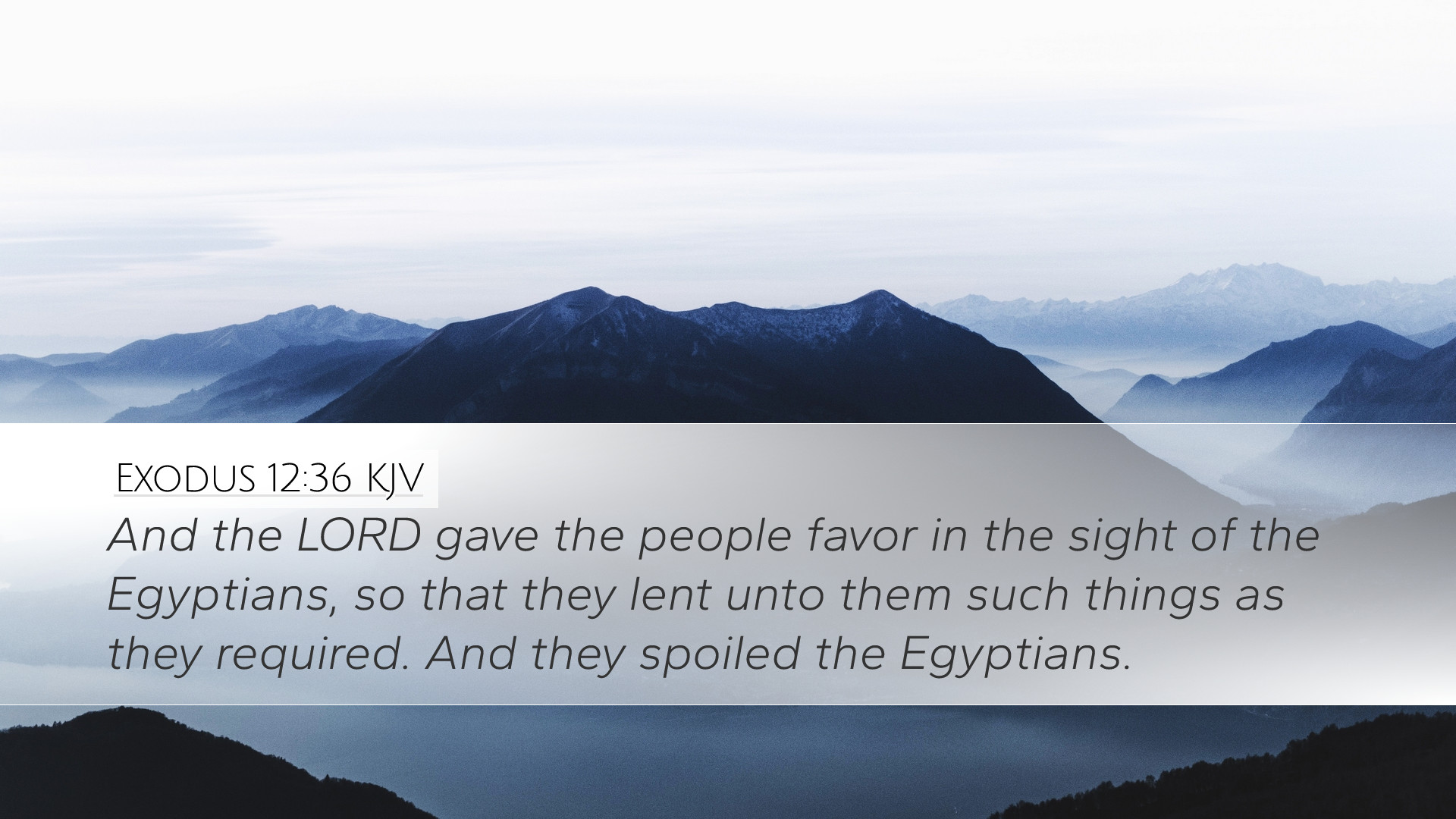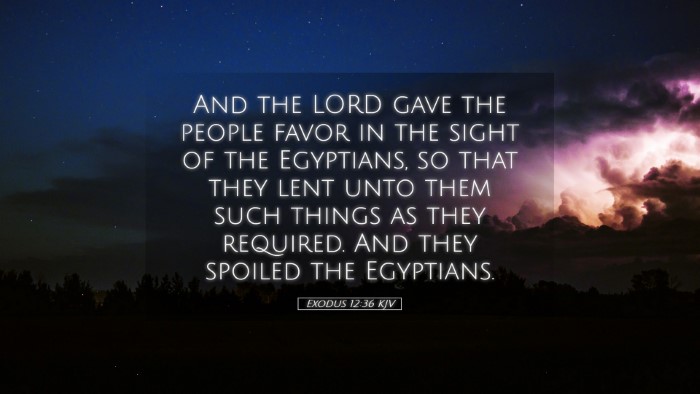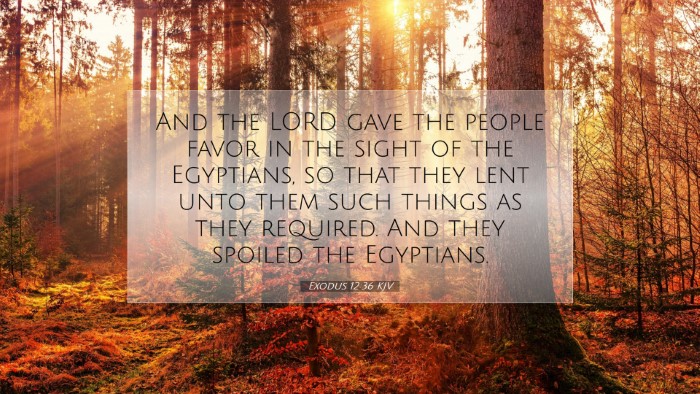Commentary on Exodus 12:36
Exodus 12:36 states, "And the LORD gave the people favor in the sight of the Egyptians, so that they let them have what they asked. And they plundered the Egyptians." This pivotal moment in biblical history is a testament to God’s providence and serves as a profound lesson for believers regarding divine favor and deliverance.
Context and Historical Background
This verse occurs at a crucial juncture in the Exodus narrative, where God is finally leading His people, Israel, out of slavery in Egypt after a series of plagues meant to persuade Pharaoh to release them. The exodus represents not merely a physical exit from a land of bondage but also highlights God's unwavering commitment to His covenant with Abraham, Isaac, and Jacob.
The Divine Favor
Theological Theme of Favor: The mention of divine favor in this verse invites pastors and scholars to reflect deeply on the character of God. Matthew Henry notes that God's sovereignty enabled the Israelites to gain the goodwill of the Egyptians. This favor is critical not just for the material wealth it provided to the Israelites, but also symbolizes God's approval and assistance in their quest for freedom.
Albert Barnes further emphasizes that this act of favor was a divine intervention that turned the hearts of the Egyptians towards the Israelites. This moment serves as a profound reminder of how God can influence the hearts of even those who oppose His people, demonstrating that His purpose prevails despite human opposition.
Analysis of the Plunder
In recording that they "plundered" the Egyptians, the verse reflects God's justice concerning the long history of oppression faced by the Israelites. Adam Clarke elaborates on this point, explaining that this plunder acted as a form of restitution for the years of slavery endured by Israel. In this light, the wealth acquired can be perceived as a righteous recompense, symbolizing God's justice and the restoration of His people.
Spiritual Implications
From a spiritual perspective, as leaders and theologians, we can glean multiple lessons from this event:
- The Blessing of Obedience: The Israelites' obedience in following God’s command to leave Egypt is met with divine reward. This teaches that when we align ourselves with God’s will, we can expect His favor to guide our paths and provide for our needs.
- Trust in God's Provision: The passage illustrates that God cares for His people’s physical and spiritual welfare. This act of plunder highlights God's ability to provide abundantly.
- Preparation for the Journey: The goods acquired became essential for the Israelites in their wilderness journey. It signifies that God's provisions are often preparatory for the next phase of our spiritual journey, emphasizing His foresight and planning.
Application for Today's Believers
The implications of Exodus 12:36 extend far beyond the historical event into the lives of contemporary believers. Here are some applications for pastors and church leaders:
- Advocacy for Justice: Just as God sought justice for the Israelites, we are called to advocate for justice and righteousness in our communities. It urges us to stand against oppression and fight for those who cannot fight for themselves.
- Encouragement in Trials: The demonstration of favor amidst adversity provides encouragement to believers facing their trials. We can trust that God's hand is at work, even in the most challenging circumstances.
- Recognition of God's Sovereignty: As church leaders, teaching our congregations about God's omnipotence can strengthen faith and provide comfort during times of distress. God’s favor shown to the Israelites assures us of our identity as His chosen people, called to display His light.
Conclusion
Exodus 12:36 speaks powerfully to God’s provision, favor, and justice. It invites theological reflection and practical application for modern believers. As we meditate on the implications of God’s actions, may we, like the Israelites, embrace our calling to rely on His favor and provisions, trusting in His ultimate plan for our lives and our communities.


